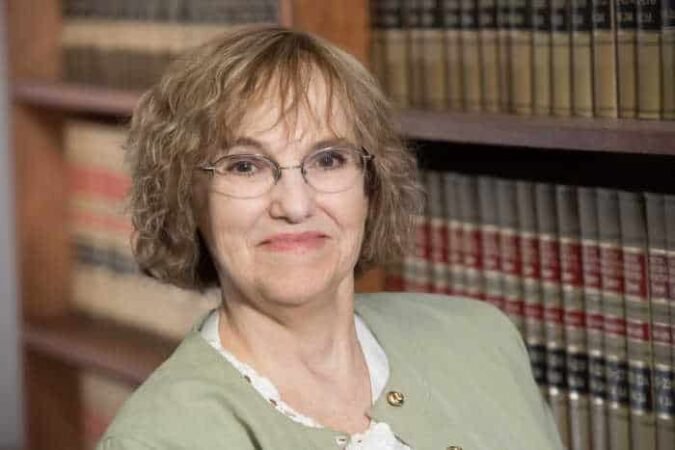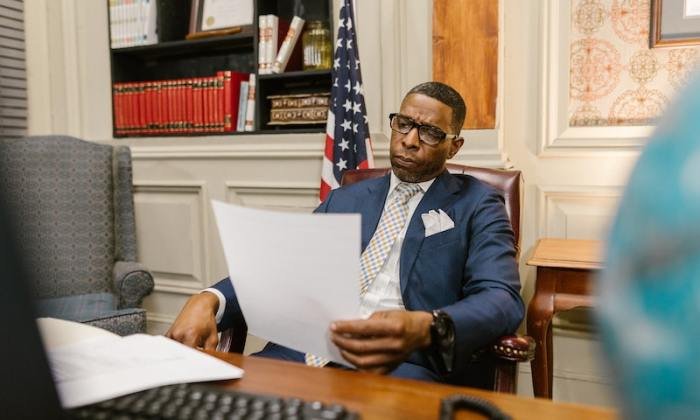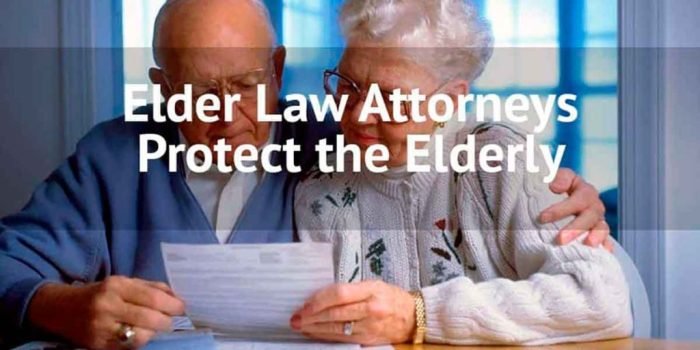
Navigating the complexities of aging can be daunting, especially when legal matters arise. In Buffalo, New York, a specialized field of law exists to address the unique needs of seniors and their families: elder law. This area encompasses a broad range of services, from estate planning and Medicaid applications to long-term care planning and protection from elder abuse. Understanding the nuances of elder law in Buffalo is crucial for ensuring the well-being and security of older adults and their loved ones.
This comprehensive guide explores the multifaceted world of Buffalo elder law attorneys, examining the services they offer, the challenges they face, and the critical role they play in protecting the rights and interests of the elderly population. We’ll delve into the specifics of finding a qualified attorney, understanding common legal issues, and navigating the ethical considerations inherent in this sensitive area of practice. Our aim is to empower seniors and their families with the knowledge they need to make informed decisions and secure their futures.
Understanding the Buffalo, NY Elder Law Market

The Buffalo, NY, elder law market is shaped by a complex interplay of demographic trends, legal complexities, and the specific needs of a rapidly aging population. Understanding this market requires examining the characteristics of the elderly population, the prevalent legal issues they face, and the diverse services offered by elder law attorneys in the region.
Demographic Profile of Buffalo’s Elderly Population
Buffalo’s elderly population, like many other upstate New York cities, is experiencing growth. While precise figures fluctuate, data from the U.S. Census Bureau and local agencies consistently show a significant and increasing percentage of residents aged 65 and older. This population is characterized by a diverse socioeconomic background, with varying levels of income, health status, and access to resources. A significant portion of this population may have lived in Buffalo for many years, potentially owning property and having established family connections in the area. Understanding the specific needs of these diverse sub-groups within the senior community is crucial for effective elder law practice.
Prevalent Legal Issues Faced by Seniors in Buffalo
Elder law attorneys in Buffalo frequently encounter a range of legal issues impacting seniors. These commonly include estate planning, such as drafting wills, trusts, and powers of attorney. Medicaid planning to qualify for long-term care assistance is another major area of concern, often involving complex strategies to protect assets while ensuring eligibility. Guardianships and conservatorships are frequently sought when seniors lose capacity to manage their affairs. Finally, elder abuse and exploitation cases, sadly, also constitute a significant portion of the workload for many Buffalo elder law attorneys. These issues require a sensitive and thorough approach, ensuring the protection of vulnerable seniors.
Services Offered by Different Types of Elder Law Attorneys in Buffalo
The services offered by elder law attorneys in Buffalo vary depending on their individual expertise and practice focus. Some attorneys specialize in estate planning, focusing on wills, trusts, and probate matters. Others concentrate on Medicaid and long-term care planning, guiding clients through the often-complex application processes and asset protection strategies. Still others dedicate their practice to handling cases of elder abuse and exploitation, working to protect vulnerable seniors from financial and physical harm. Many attorneys offer a combination of these services, providing comprehensive legal assistance to their elderly clients. The choice of attorney often depends on the specific legal needs of the individual senior and their family.
Unique Challenges Faced by Elder Law Attorneys in Buffalo’s Legal Environment
Buffalo’s legal environment presents unique challenges for elder law attorneys. The fluctuating economic conditions in the region can impact seniors’ financial stability and access to resources, increasing the complexity of Medicaid planning and asset protection strategies. Furthermore, the geographic distribution of seniors, with some residing in urban areas and others in more rural settings, can pose logistical challenges. Navigating the intricacies of New York State’s elder law statutes and regulations requires specialized knowledge and experience, particularly given the frequent updates and changes in these laws. Finally, the increasing prevalence of elder abuse and exploitation necessitates ongoing vigilance and collaboration with other professionals, such as social workers and law enforcement agencies, to effectively protect vulnerable seniors.
Services Offered by Buffalo Elder Law Attorneys
Elder law attorneys in Buffalo provide a comprehensive range of legal services designed to address the unique challenges faced by aging individuals and their families. These services often go beyond simple estate planning, encompassing crucial aspects of healthcare, financial security, and long-term care. Understanding these services is vital for ensuring the well-being and legal protection of elderly loved ones.
Core Services Offered by Buffalo Elder Law Attorneys
The following table Artikels the core services typically provided by elder law attorneys in Buffalo. These services are frequently interconnected, requiring a holistic approach to effectively address the complexities of aging.
| Service | Description | Cost (range) | Common Client Need |
|---|---|---|---|
| Estate Planning | Creating wills, trusts, and powers of attorney to manage assets and ensure smooth transfer of property after death. This often includes minimizing estate taxes. | $1,500 – $5,000+ | Protecting assets and ensuring inheritance wishes are followed. |
| Medicaid Planning | Strategies to qualify for Medicaid benefits to cover long-term care costs, including nursing home care. This often involves asset protection techniques. | $2,000 – $7,000+ | Affording long-term care without depleting life savings. |
| Guardianship and Conservatorship | Legal representation for individuals who can no longer manage their own affairs, securing their rights and well-being. | $3,000 – $10,000+ | Protecting vulnerable individuals who lack capacity. |
| Long-Term Care Planning | Developing a comprehensive plan for long-term care needs, considering various options such as assisted living, nursing homes, and in-home care. | $1,000 – $5,000+ | Securing appropriate and affordable care as health needs change. |
Specialized Services Offered by Buffalo Elder Law Attorneys
Beyond the core services, many Buffalo elder law attorneys offer specialized expertise in areas such as veterans’ benefits and supplemental needs trusts (SNTS). Veterans’ benefits can provide significant financial assistance for healthcare and other needs, while SNTS allow individuals to protect assets while still qualifying for Medicaid. These specialized services require in-depth knowledge of specific regulations and procedures.
Case Studies Illustrating the Benefits of Elder Law Services
One example involved a Buffalo couple, the Smiths, who worked with an elder law attorney to establish a Medicaid plan. Facing escalating healthcare costs for Mrs. Smith’s Alzheimer’s disease, they were initially concerned about depleting their life savings. Through careful planning, the attorney helped them protect their assets while ensuring Mrs. Smith qualified for Medicaid coverage, allowing them to maintain their quality of life without financial ruin. This avoided the need to sell their family home.
Another case involved Mr. Jones, a veteran struggling with the complexities of applying for veterans’ benefits. His attorney successfully navigated the application process, securing substantial financial assistance for his medical expenses and home modifications, significantly improving his independence and comfort. The attorney’s expertise saved Mr. Jones considerable time and frustration.
Finding and Choosing a Buffalo Elder Law Attorney
Navigating the complexities of elder law can be challenging, particularly when seeking legal counsel. This section provides a structured approach to finding and selecting a qualified elder law attorney in Buffalo, NY, ensuring you receive the best possible legal representation for your specific needs. Careful consideration of several key factors will lead to a confident and informed decision.
Steps to Finding a Suitable Attorney
Finding the right attorney involves a methodical approach. Begin by utilizing online resources such as the New York State Bar Association’s attorney search directory. This allows you to filter by location (Buffalo), practice area (Elder Law), and other relevant criteria. Next, seek recommendations from trusted sources like family, friends, financial advisors, or even your primary care physician. They may have personal experiences or professional relationships that can offer valuable insights. Finally, review online attorney profiles and websites, paying close attention to their experience, client testimonials, and areas of specialization within elder law. This multi-faceted approach increases your chances of finding a compatible and competent attorney.
Essential Questions for Potential Attorneys
Prior to committing to an attorney, scheduling consultations with several candidates is highly recommended. During these meetings, a structured approach to questioning will ensure you gather the necessary information. These consultations are crucial for assessing compatibility and expertise.
- Attorney’s experience handling cases similar to yours (e.g., Medicaid applications, estate planning for seniors with specific health conditions).
- Their fee structure, including hourly rates, retainer fees, or contingency fees, and any associated costs.
- Their communication style and responsiveness to client inquiries.
- Their approach to problem-solving and the strategies they would employ in your specific situation.
- Their familiarity with relevant local, state, and federal laws and regulations impacting elder law in Buffalo.
Key Factors for Comparing Attorneys
Comparing attorneys requires a balanced consideration of several key aspects. The selection process shouldn’t be solely based on price; experience, reputation, and specialization are equally important.
- Experience: Look for attorneys with significant experience in elder law, ideally with a proven track record of successful cases. Years of practice, coupled with specialized certifications or memberships in relevant professional organizations, indicate a high level of expertise.
- Fees: Attorneys’ fees vary considerably. Obtain detailed information on their fee structure upfront, clarifying all potential costs to avoid unexpected expenses. Compare fee structures between different attorneys, ensuring you understand what services are included.
- Reputation: Research the attorney’s reputation by checking online reviews, seeking referrals, and inquiring about their disciplinary history with the New York State Bar Association. A strong reputation indicates a history of client satisfaction and professional integrity.
- Specialization: While general elder law attorneys are helpful, specializing in specific areas (e.g., Medicaid planning, estate administration, long-term care) can be highly beneficial. Consider your specific needs and choose an attorney with expertise in those areas.
Verifying Attorney Credentials
Verifying an attorney’s credentials is a straightforward process. You can access the New York State Bar Association’s website and use their attorney search tool to confirm their license status, admission date, and any disciplinary actions. This database provides a comprehensive overview of an attorney’s professional standing within the state. Additionally, you can contact the New York State Bar Association directly to inquire about any specific concerns regarding an attorney’s license or disciplinary history. This independent verification ensures you’re engaging a qualified and licensed legal professional.
Common Legal Issues in Buffalo Elder Law

Navigating the complexities of aging often presents significant legal challenges. Elder law in Buffalo, like elsewhere, deals with a range of issues impacting seniors and their families, from estate planning to long-term care and elder abuse prevention. Understanding these common legal issues is crucial for ensuring the well-being and security of older adults.
Estate Planning for Seniors in Buffalo
Effective estate planning is paramount for seniors in Buffalo. This involves legally documenting wishes regarding the distribution of assets after death and ensuring the continued care of any dependents. A will dictates the distribution of property; however, for more complex situations, a trust may be more appropriate, offering greater control and potentially minimizing estate taxes. Durable powers of attorney allow seniors to designate someone to manage their financial affairs or make healthcare decisions if they become incapacitated. Proper estate planning minimizes potential family disputes and ensures the smooth transfer of assets.
Medicaid Application Process in Buffalo
Applying for Medicaid in Buffalo, a government program providing healthcare assistance to low-income individuals, involves a detailed application process. This includes providing extensive financial documentation and demonstrating medical need. The application process can be challenging, requiring careful completion of forms and adherence to strict guidelines. Elder law attorneys can assist in navigating the complexities of the application, ensuring eligibility is properly demonstrated and maximizing the chances of approval. Failure to accurately and completely fill out the forms can result in delays or denial of benefits.
Long-Term Care Planning in Buffalo
Long-term care planning in Buffalo addresses the significant financial and legal challenges associated with nursing home care or assisted living facilities. These facilities vary significantly in cost and services offered. Planning involves considering the financial resources available, assessing the individual’s needs, and understanding the various payment options, including Medicaid and private insurance. Advance planning can help alleviate financial strain on families and ensure access to appropriate care. For instance, a properly funded irrevocable trust might protect assets while still qualifying for Medicaid.
Elder Abuse and Neglect in Buffalo
Elder abuse and neglect encompass various forms of mistreatment, including physical abuse, emotional abuse, financial exploitation, and neglect. In Buffalo, as in other areas, these acts are illegal and have serious consequences. Victims and their families can seek legal recourse through civil lawsuits to recover damages or through criminal prosecution of the abuser. Identifying and reporting elder abuse is crucial, and legal professionals can assist victims in navigating the legal system and obtaining justice. Examples of financial exploitation include unauthorized access to bank accounts or the misuse of power of attorney. Neglect can involve failure to provide necessary medical care or adequate food and shelter.
Ethical Considerations and Best Practices
Elder law in Buffalo, like elsewhere, demands the highest ethical standards. Attorneys navigating the complexities of aging clients’ legal and financial affairs face unique challenges requiring unwavering commitment to integrity and client well-being. This section Artikels key ethical considerations and best practices employed by Buffalo elder law attorneys.
Maintaining client confidentiality is paramount. Elder law attorneys handle sensitive personal and financial information, often involving health conditions, family dynamics, and estate details. Strict adherence to attorney-client privilege, as enshrined in New York State law, is essential. This privilege protects all confidential communications between an attorney and their client from disclosure, barring specific exceptions defined by law, such as suspected elder abuse or court orders. Attorneys must implement robust security measures, including secure file storage, password-protected systems, and adherence to data privacy regulations like HIPAA if handling health information. Furthermore, they must carefully screen their staff and ensure they also understand and uphold these confidentiality obligations.
Client Confidentiality and Compliance with Regulations
Buffalo elder law attorneys diligently maintain client confidentiality through various methods. These include using encrypted email and cloud storage for sensitive documents, physically securing client files in locked cabinets, and limiting access to client information to only authorized personnel. Compliance with state and federal regulations, such as the Health Insurance Portability and Accountability Act (HIPAA) when dealing with protected health information, is meticulously followed. Regular training for staff on data security and ethical handling of client information is a standard practice. Violations of confidentiality can result in serious disciplinary actions, including license suspension or revocation, and potential civil lawsuits. Therefore, a proactive approach to data security and privacy is critical.
Professional Relationships with Other Elder Care Professionals
Effective collaboration with other professionals involved in elder care is crucial for providing comprehensive and holistic client care. Buffalo elder law attorneys regularly interact with physicians, social workers, financial advisors, and geriatric care managers. These relationships are built on mutual respect, clear communication, and a shared commitment to the client’s best interests. For instance, an attorney might consult with a physician to understand the client’s medical prognosis to better advise on estate planning or long-term care options. Similarly, collaboration with a social worker can help assess the client’s social and emotional well-being, ensuring that legal solutions are aligned with the client’s overall needs. Open and transparent communication among these professionals fosters a cohesive approach to elder care, maximizing positive outcomes for the client. Maintaining these professional relationships often involves attending relevant professional conferences and networking within the Buffalo community. This collaborative approach ensures the client receives integrated and effective care.
Final Review

Securing a comfortable and legally sound future for yourself or a loved one requires careful planning and expert legal guidance. Buffalo elder law attorneys provide invaluable support in navigating the intricacies of estate planning, healthcare decisions, and government assistance programs. By understanding the services available, asking the right questions, and choosing a reputable attorney, seniors and their families can confidently address their legal needs and build a secure future. Remember, proactive planning is key to ensuring peace of mind and protecting your legacy.
User Queries
What is the average cost of hiring a Buffalo elder law attorney?
Fees vary widely depending on the services required, the attorney’s experience, and the complexity of the case. It’s best to schedule consultations to obtain personalized cost estimates.
How can I verify an attorney’s license in New York State?
You can verify an attorney’s license through the New York State Unified Court System website, which maintains a searchable database of licensed attorneys.
What are some red flags to watch out for when choosing an elder law attorney?
Red flags include high-pressure sales tactics, unwillingness to answer questions thoroughly, lack of transparency about fees, and negative online reviews.
Do all elder law attorneys handle veterans’ benefits?
No, while many do, some specialize in other areas. It’s crucial to find an attorney with experience in veterans’ benefits if that’s a specific need.




